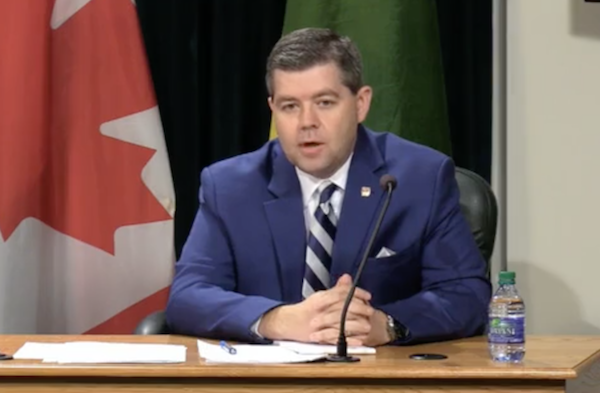
The Province of Saskatchewan is seeking sole authority to select newcomers moving to the province through the newly proposed Saskatchewan Immigration Accord, giving Saskatchewan similar jurisdiction that has long been guaranteed to the Province of Quebec.
On June 28, Immigration and Career Training Minister Jeremy Harrison met with the federal and provincial Ministers Responsible for Immigration and put forward the detailed proposal.
The new Saskatchewan Immigration Accord would allow the province control over the family class of immigration, a transfer of federal resources for settlement services and a guaranteed provincial allocation of nominees each year that would be proportionate to the population of Saskatchewan.
“Saskatchewan requires more autonomy and flexibility over immigration in order to meet its economic needs and address gaps in the labour market,” said Jeremy Harrison, Immigration and Career Training Minister. “Canada should be focusing its efforts on reducing processing times for application and let the provinces select immigrants and ensure their effective settlement.”
Saskatchewan is seeking the same level of autonomy currently granted to the province of Quebec. Under the Quebec Accord, they have the sole responsibility for the selection of immigrants destined for their province, while Canada has control for their admission based on national security.
“When it comes to immigration, Saskatchewan expects the same deal as Quebec. Immigration is a key component of our government’s plan to grow the province to 1.4 million people and create an additional 100,000 jobs by 2030,” Harrison said. “Provincial governments are in the best position to respond to local labour market needs with new Canadian’s. The provinces should not be limited by economic categories or caps on provincial nominee programs set by the federal government.”
Saskatchewan expects to meet and exceed its current cap of 6,000 under the Saskatchewan Immigrant Nominee Program (SINP) this year. Without an increase to the federal cap, international recruitment by employers will be delayed.
A proportionate share of national immigration, as contemplated in the Saskatchewan Immigration Accord, would see at least 13,000 positions allocated to the province in 2022.
A new Saskatchewan Accord would reduce confusion among new Canadians and allow the province to create a continuum of services that would range from settlement to integration. This would better position newcomers for long-term success and ensure that there are no gaps in response to humanitarian crises, such as the conflict in Ukraine.
The transfer in settlement funding would mean approximately $42 million dollars would be transferred to the province annually.
“As Canada’s longest serving Immigration Minister, I have long maintained that the transfer of these authorities makes sense from the perspective of the provincial and federal government – and most significantly – for new immigrants coming to Saskatchewan,” Harrison said. “Our province has gained a great deal of experience and developed very significant capacity in the past decade and a half in administering and managing the SINP. Simply put – we know our province’s needs and labour markets better than the Government of Canada.”
“By transferring selection of all immigrants to our province, including in the family class, the federal government can focus on addressing the outrageous processing times for admissions that are causing such issues for hundreds of thousands of potentially new Canadians. The transfer of responsibility for delivering settlement programming to the province also makes sense,” he continued.
“We know our partners, local circumstances and needs better than the Government of Canada does.”
According to the Government of Saskatchewan, the current federal approach to immigration does not align with the direction of the province’s growth.
“A Saskatchewan Accord will enable the province to ensure that its immigration strategy is meeting the needs of Saskatchewan employers and improving the outcomes for newcomers.”
